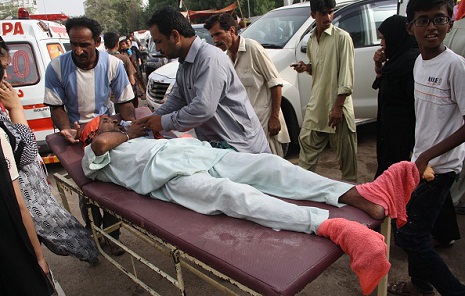Opposition lawmakers slammed Prime Minister Nawaz Sharif’s ruling party in parliament over the repeated power cuts and water shortages that have considerably worsened the crisis, Pakistan’s Dawn newspaper reported. Many accused the government of “inaction” in the face of hundreds of deaths in the provincial capital Karachi—the country’s largest city—and its surrounding areas.
Over 1,000 people have now died from heat-stroke or related medical problems, a majority of them poor and elderly people without access to air conditioning. The escalating problems from the heat wave prompted the government to declare a public holiday on Wednesday so people could stay indoors, according to the New York Times, and though the resumption of sea breezes from the country’s southern coast contributed to a lowering of the overall temperature and a reduction in the number of fatalities, there are still thousands more undergoing treatment at various hospitals across the region.
The Pakistani army and a paramilitary force, the Rangers, have also stepped in, setting up relief camps for heatstroke patients, while various non-government and volunteer organizations have been distributing water and medicines outside hospitals.
“Today was a lot better,” Anwar Kazmi, a spokesman for the Edhi foundation that runs Karachi’s largest morgue, told the Times on Wednesday. “We’ve had 58 deaths today, compared to yesterday when the death toll rose to 300.”
Khawaja Mohammad Asif, Pakistan’s Water and Power Minister, attempted to deflect the blame from his government and de-link the power shortages, which Pakistan has long grappled with, from the heat wave.
“The federal government is not responsible if there is a water shortage in Karachi,” he said in parliament. “We are ready for accountability, but it’s not appropriate to blame us for each and every thing.”
More about:
















































